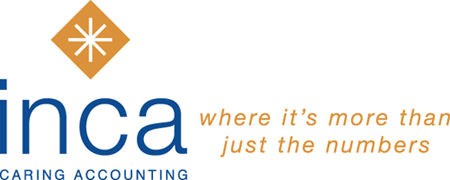We hope this finds you, your family and your team safe and healthy.
Are you a consultant or a contractor who’s required to spend time working at a customer’s site for long periods? The nature of your work might even mean you have to spend time working at more than one location.
Either way, if you have to make yourself available at different locations to carry out your work, you’re likely to incur additional costs for travel and subsistence.
If under IR35 legislation*, your status is deemed to be that of an employee, you cannot claim tax relief on these expenses. But if you’re a genuine contractor who is operating outside of IR35, travel and subsistence associated with a non-permanent workplace are tax-deductible – as long as your claim complies with something that HMRC refers to as ‘the 24-month rule’.

It’s an area that can sometimes cause confusion. To try and help clarify things, below are answers to some of the questions we’re most frequently asked by our clients:
Q1: What is the 24-month rule?
A: The cost of travelling to and from your regular workplace are not tax-deductible. But if you’re required to travel between your home and a temporary workplace, e.g. your client’s offices, HMRC recognise that you are likely to incur costs beyond those you’d normally expect.
Essentially, travelling to a temporary workplace is not part of your regular commute and becomes a business expense. Under the 24-month rule, you are allowed to claim tax relief on your travel and subsistence expenses – except where the change of workplace has no substantial effect on your journey to work.
However, to ensure this exemption opportunity isn’t abused, the place you’re travelling to must meet with HMRC’s definition of temporary.
Q2: How do I determine whether a workplace is temporary or permanent?
A: To check if a workplace is temporary or permanent, you need to answer the following questions:
- Have you spent, or are you likely to spend more than 40% of your working time at the workplace?
- Have you attended, or are you likely to attend the workplace over a period lasting more than 24 months?
If you answered ‘NO’ to both these questions, the workplace is TEMPORARY, and you can claim tax relief.
If you answered ‘YES’ to both these questions, the workplace is PERMANENT, and you cannot claim tax relief.
Q3: What will happen if my IR35 status is revised?
A: While the 24-month rule has no bearing on your IR35 status, if HMRC should ever investigate and find you liable, you’ll have to repay any such expenses you’ve claimed.
Reforms to IR35 legislation were due to be introduced in April 2020 but have been postponed until 2021. Liability for ensuring you are operating under the correct status rests with you and ignoring the legislation may result in a fine.
Q4: What happens if I’m claiming tax relief and my contract is extended beyond 24 months?
A: As soon as you know a contract is going to last more than 24 months, you must stop claiming relief immediately.
Q5: What if I’m not sure how long a contract is going to last?
A: You may not be sure about the exact duration of a contract, but as long as you believe it will not last more than 24 months, you can claim tax relief.
Q6: When does the 24 month period start & finish?
A:The 24 months referred to in the rule is a calendar period and not the amount of time you might spend working at a temporary office. So, if your claim begins on 1st June 2020, it must finish before 1st June 2022. The 24-month calendar rule applies even if your contract is extended part-way through.
Still Confused? Inca Can Help Ensure You Play by the 24-Month Rule
As we said earlier, it can be complicated to understand the nuances of this rule – and getting it wrong could lead to penalties. If you’re still not entirely confident whether you’re allowed to offset travel and subsistence expenses against your tax liability, we can help determine the status of your workplace and advise what you should do.
Get in touch with us to discuss any aspect of the 24-month rule. And if you need professional advice regarding your IR35 status, we can help you with that too.
Stay safe and remember we’re here whenever you need someone to talk to – whether it’s about work or just for a bit of moral support!
Call us now on 01235 868888 or email us at [email protected].
*For more information about IR35, go to: Are You A Public Sector Contractor? What You Need to Know About New IR35 Rules




